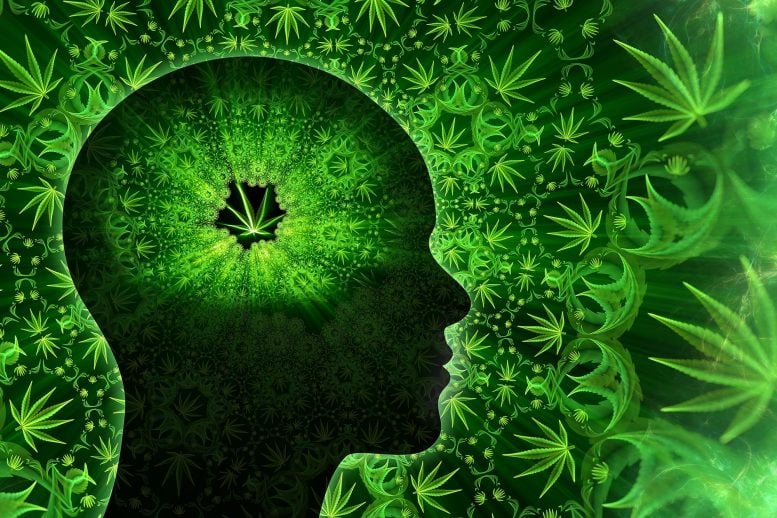
Modern cannabis is far stronger than it once was — and with that strength comes higher risks. Frequent use of high-THC weed, especially in younger people, is strongly linked to psychosis and even schizophrenia. Experts stress quitting and seeking treatment early.
- Cannabis potency is increasing — The concentration of tetrahydrocannabinol (THC) has increased fivefold in the last 20 years in Canada from about 4% to 20% in most legal dried cannabis.
- High-potency and regular cannabis use is linked to increased risk of psychosis — The risk of psychosis is increased in people using high-potency THC (more than 10% THC), people using it frequently, and those who are younger and male. A history of mental disorders (depression, anxiety, etc.) also appears to increase the risk.
- Cannabis-induced psychosis and cannabis use disorder increase the risk of schizophrenia — A recent study of 9.8 million people in Ontario found a 14.3-fold higher risk of developing a schizophrenia-spectrum disorder in people visiting the emergency department for cannabis use and a 241.6-fold higher risk from visits for cannabis-induced psychosis.
- Treatment requires stopping cannabis and taking medication — Continued use of cannabis after a first episode of cannabis-induced psychosis is linked to greater risk of returning symptoms. Antipsychotic medication can help people with severe and prolonged symptoms.
- Behavioural options may help with cannabis cessation — Motivational interviewing or cognitive behavioural therapy by a physician or psychologist can help build skills to resist cravings and follow treatment recommendations.
“Cannabis from the 2000s is not the same as in 2025,” said coauthor Dr. Nicholas Fabiano, MD, resident and researcher with the Department of Psychiatry, University of Ottawa, Ottawa, Ontario. “THC content has increased by 5 times. This is likely a significant driver in the increasing link between cannabis use and schizophrenia.”
More About THC
THC, or Δ⁹-tetrahydrocannabinol, is the main psychoactive compound in the cannabis plant, responsible for producing the euphoric “high” associated with marijuana use. It works by interacting with the body’s endocannabinoid system, particularly CB1 receptors in the brain and central nervous system, influencing neurotransmitter release. This interaction affects mood, perception, appetite, memory, and coordination, with effects that can range from relaxation and heightened sensory perception to impaired motor skills and short-term memory.
Found naturally in cannabis flowers, THC can also be consumed in concentrated forms such as oils, edibles, tinctures, and vape products. Potency varies greatly depending on strain and preparation, and the method of consumption can influence both the onset and duration of effects. While THC can provide pleasurable and therapeutic effects, it can also cause side effects such as anxiety, dizziness, dry mouth, and impaired judgment, especially in higher doses or for inexperienced users.
Medically, THC has been approved in some regions for treating chronic pain, nausea related to chemotherapy, muscle spasticity in multiple sclerosis, and appetite loss in conditions such as HIV/AIDS. Prescription formulations like dronabinol offer standardized doses for medical use. However, its legal status differs worldwide—some countries and states permit recreational or medicinal use, while others maintain strict prohibitions—often reflecting broader cultural and policy attitudes toward cannabis.
Reference: “Cannabis and psychosis” by Sophie Li, Marco Solmi, Daniel T. Myran and Nicholas Fabiano, 11 August 2025, CMAJ.
DOI: 10.1503/cmaj.250659
Never miss a breakthrough: Join the SciTechDaily newsletter.
4 Comments
Odd as my experience using THC is directly inverse of what this article claims.
Daily smoker here, smoke some strong stuff.
But it helps me with anxiety, depression, and sleep.
Why would I want to take anti-depressents over THC? Anti-depressents are terrible for you as well.
They increase depression and anxiety sometimes, they increase your risk of dementia, have terrible side effects, and when you try to get off them ITS A HUGE PROCESS.
Sounds like big pharma article here trying to get lost customers back.
Perhaps your anxiety and depression are due to cannabis withdrawal. Surprise- withdrawal stops when you use but will restart 12 hrs later
The pharmaceutical industry trots out the same nonsense about every 5 years. The same argument was made in the ’80s saying that the pot was a lot stronger then than the 60s. This argument became ridiculous as the industry matured and growers learned how to maximize THC levels. Apparently, the authors would like us to believe growers are still learning how to ever increase THC levels.
Ummm…based on experience over the past 60 years or so, while the THC level is 5 times more powerful, it amount needed to be smoked is at least 5 times less. That would mean the equivalent amount ingested would be pretty much the same…while smoking less is better for your lungs.
The industries most impacted by the use of THC are often (if not always) behind articles like this. The alcohol industry, in particular, is very opposed to THC use, since it often replaces alcohol use.